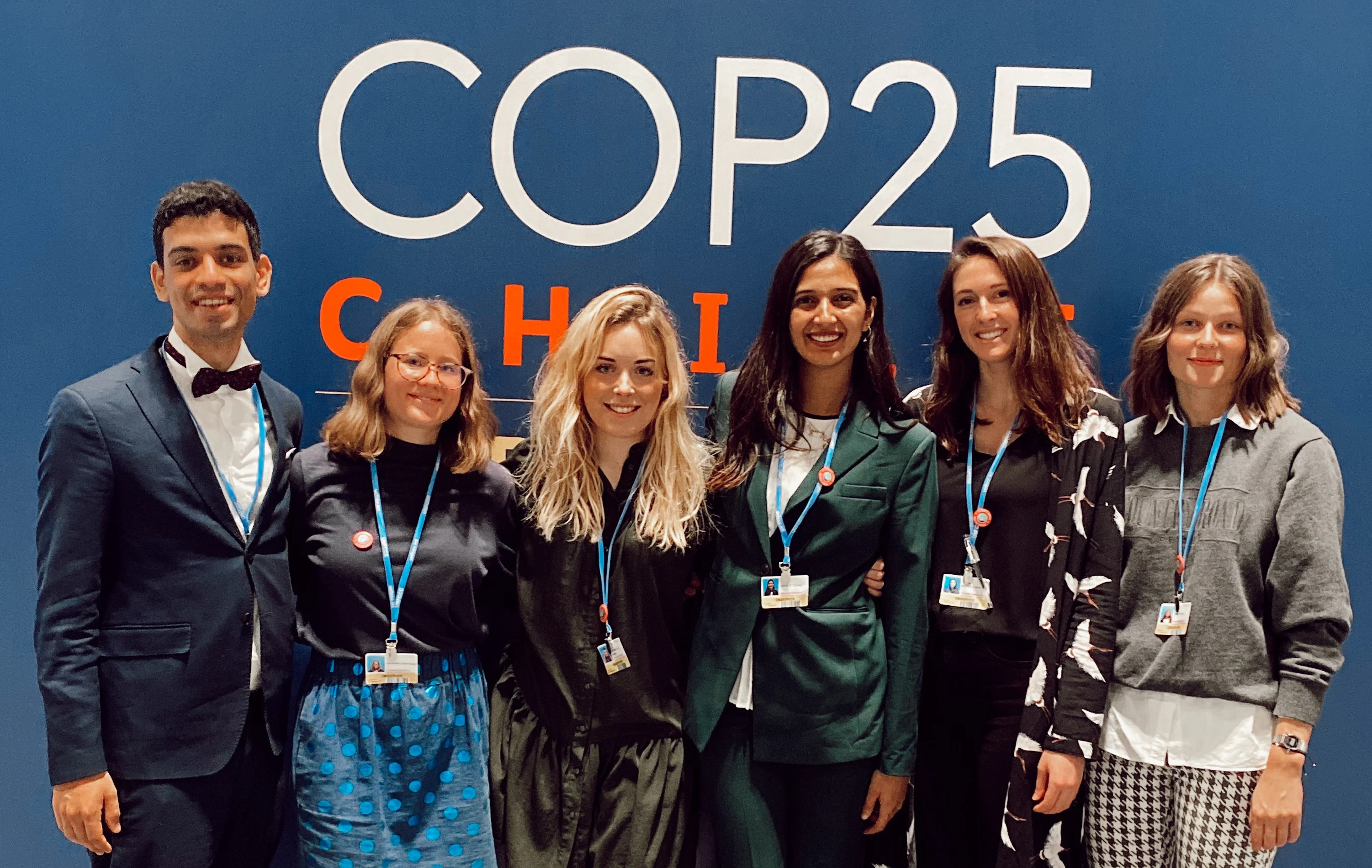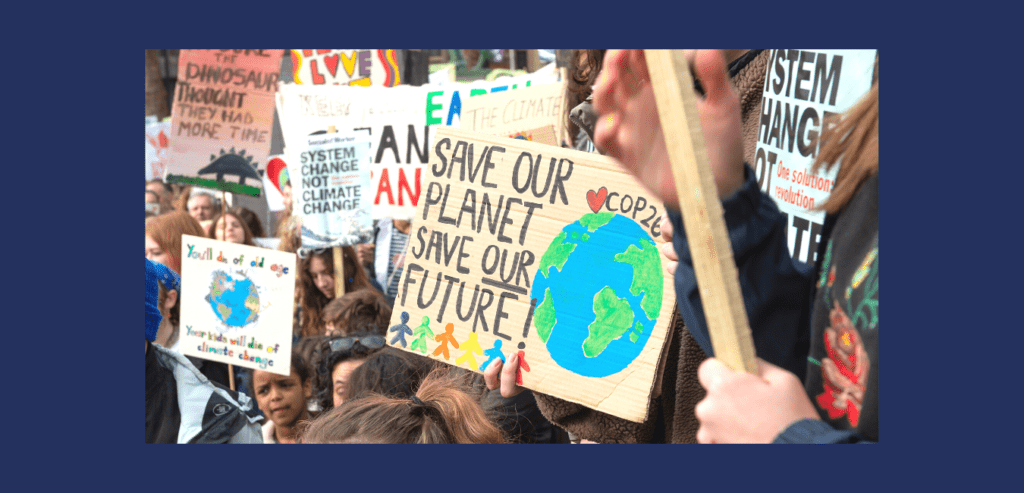Author: Cities4Children
In the lead up to this year’s 27th United Nations Climate Change Conference in Egypt, we spoke with Omnia El Omrani, the official Youth Envoy for COP27. Youth across the world play a tremendous role in energising and elevating the climate movement. Here, Omnia explains her role as Youth Envoy and how children and youth will be collaborating with leaders, experts and fellow activists at COP27 to demand and negotiate for urgent and sustainable climate action.
Why did you become a climate and youth activist?
As a doctor, my core belief is that healing the planet is integral to protecting and promoting people’s health and well-being. The climate crisis directly affects the air we breathe, the food we eat, and where and how we live and travel. And [bctt tweet=”younger generations are disproportionately affected by climate change: a child born in 2020 will face eight times the number of climate events we face today.” username=”cities4children”]
A defining moment for me was when I was working as an intern in a hospital in Miami, Florida when Hurricane Irma struck in 2017. I witnessed firsthand the serious injuries, stress and anxiety that extreme climate events cause and how power outages disrupt urgent care. These experiences motivated me to attend several global climate events including previous Conference of the Parties (COPs).

Omnia with fellow youth delegates at the COP25 in Madrid, Spain in 2019 © Omnia El Omrani
For the last six years, I have engaged with health professionals and passionate youth activists to better understand the links between climate change and health. [bctt tweet=”I believe that the health argument can empower youth to demand for climate justice and intergenerational equity.” username=”cities4children”]
What is a Youth Envoy and what do you hope to achieve at COP27?
This is the first time that a COP Presidency has appointed an official Youth Envoy. As Youth Envoy, I am the link between youth and the Presidency. My role is to ensure youth climate activist groups, organisations and individuals have opportunities for meaningful engagement at COP27. This means acknowledging their independence as youth activists but also paving the way for youth climate experts to sit at the negotiation table with country delegations to voice their concerns, ideas and solutions for climate action and climate justice.
In the lead-up to COP27, I held ten consultations with diverse international youth groups in the Children and Youth Constituency to United Nations Framework Convention on Climate Change (YOUNGO) and with attendees at the 2022 Africa Climate Week in Gabon. We discussed our priorities around issues like access to COP, capacity building, youth country delegates and youth recommendations, and how best to frame these as policy asks at the upcoming COP27. My two priorities are capacity building and elevating actions:
- Capacity building: [bctt tweet=”We need to support youth with the skills and tools they need to be effective in the policymaking and climate negotiations spaces at COP27.” username=”cities4children”] We held pre-COP capacity building events and developed a practical toolkit for young delegates to ensure they have a more effective COP experience.
- Elevating actions: [bctt tweet=”We want to amplify youth-led climate solutions so youth can attract strategic partners to scale up their work.” username=”cities4children”] To support this, we have launched the Seven Stories of COP27 Campaign where seven youth activists share their success stories.

Omnia El Omrani with attendees at the Africa Climate Week 2022 held in Gabon in the lead up to COP 27 © Omnia El Omrani
For the first time at a COP there will be two policy roundtables on adaptation, loss and damage, mitigation and just transition involving youth delegates on the Presidency’s Youth and Future Generations Day on November 10th. [bctt tweet=”Youth experts will hold discussions with ministers, lead negotiators and other influential delegates to co-create policy recommendations based on the Global Youth Statement led by YOUNGO.” username=”cities4children”]
There will also be two policy dialogues involving children, adolescents, experts and ministers. One will be on the relevance of climate education for young people and the second on how the climate crisis is a child rights crisis and ways this can be translated into legal frameworks and implementation.
Another first at COP27 will be the Children and Youth Pavilion: a diverse action-oriented youth-led space convening young people to demonstrate youth-driven transformational frontline actions and specific policy asks for adaptation, loss and damage, mitigation and just transition, including the necessary climate finance. One of the COP Presidency’s priorities is to collaboratively engage with civil society and youth and ensure policy decisions are shaped by grounded experiences. The Egyptian government led the establishment the Youth Office at the United Nations this year.
How will you advocate for safer, cleaner and greener cities for children and youth?
Many young people’s policy asks are directly related to supporting safer, cleaner and greener cities:
- Establishing meaningful and sustainable participatory mechanisms not only to integrate and mainstream youth perspectives but also to implement youth-led solutions and local actions.
- Reimagining urban environments, transport and mobility by promoting safe and sustainable urban design and transport systems, with improved land use, access to green and blue public space, and priority given to walking, cycling, and public transport.
- Financing a healthier, fairer and greener future to save lives with a just transition towards a well-being economy.
How are youth in Egypt shaping and advancing climate action?
In the lead-up to the COP27, youth in six cities in Egypt have organised local conferences of youth (LCOYs) to empower youth to mobilise for local climate action. In addition, the Ministry of Youth and Sports with UNICEF and youth-led organisations has organised a climate caravan, travelling to 26 cities in Egypt and involving thousands of children and adolescents to build climate awareness.
Several youth-led organisations and enterprises have also been supporting local climate action. Banlastic Egypt has been tackling plastic pollution and pushing for bans on single-use plastics in Egypt, while Green-ish raises awareness of local environmental issues and supports local action. Meanwhile, young architects have also been pioneering green building practices in vulnerable communities and many different youth organisations and groups are upcycling plastic into commercially viable products. An international sustainable fashion show at COP27 will feature some of them.
What advice can you give youth attending COP27?
COPs are high-energy and demanding events where emotions can run high. Make sure you:
- Plan ahead and mark your calendar with events you want to attend. Reach out early to plan meetings with people and other groups you want to network and collaborate with.
- Make sure your group has a unified message and policy brief and are pushing the same message.
- Find creative ways to communicate your asks and solutions.
- Come to local Conferences of Youth. These are great places to network, make friends and allies and develop strong statements that can be used as a lobbying tool.
- Stay hydrated. Make time to eat, sleep and look after your mental health. Create a safe space for your group to meet and decompress.
Finally, how can Cities4Children better engage with a younger audience?
Have a youth advisory group. Work with youth who are social media experts to co-create your communication strategy. They are in the best place to advise you on what their generation wants to hear and how best to go about it.
About Omnia El Omrani
Omnia El Omrani is the first official Youth Envoy for the COP27 Presidency and a plastic and reconstructive surgery resident from Egypt. She is a commissioner at the Lancet–Chatham House Commission on post-COVID population health, a youth sounding board member of the European Union Commission Department for International Partnerships (DG-INTPA), an associate at Women Leaders for Planetary Health, and a member of the Global Youth Coalition for Road Safety and the UNICEF–AstraZeneca Youth Leaders Programme. She has attended the last three UN Climate Change Conferences in Katowice, Madrid and Glasgow, representing more than 1.3 million medical students worldwide in the International Federation of Medical Students Association (IFMSA).
In our Ask An Expert series we interview key figures in the urban space. We ask them about their work, but also about their informed opinions on how we can all improve children’s lives in cities. Read more of our blogs here.
This work is licensed under a Creative Commons Attribution-NonCommercial-NoDerivatives 4.0 International License. When re-sharing this content please ensure accreditation by adding the following sentence: ‘This blog was first published by the Global Alliance – Cities 4 Children (www.cities4children.org/blog)’

